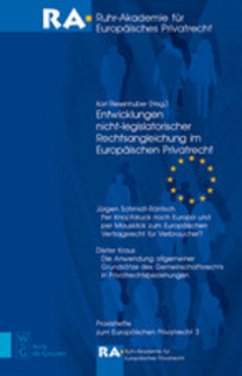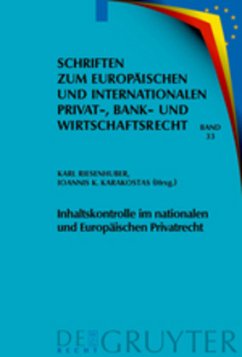
Vollharmonisierung und Europäisches Privatrecht
Methode, Implikationen und Durchführung

PAYBACK Punkte
0 °P sammeln!
The focus of this work is the concept of full harmonization in European private law. Using the relevant guidelines developed to date, it examines the actual scope of this concept in current practice and makes suggestions for how European Union legislators may meaningfully make use of this method. Besides the juridical challenges facing full harmonization, the study also shows the importance of its economic effects.
In einer Phase, in der sich die wissenschaftliche und politische Aufmerksamkeit auf einen Wettbewerb der verschiedenen Privatrechtskodifikationen der Mitgliedstaaten richten und darüber hinaus ein vertikaler Wettbewerb nationaler Kodizes im Verhältnis zu europäischen und supranationalen Regelwerken anklingt, erscheinen vollharmonisierende Richtlinien eher als Rückschritt für die Fortentwicklung des Europäischen Privatrechts.Die vorliegende Arbeit will versuchen, auszuloten, was das Konzept der Vollharmonisierung im Privatrecht tatsächlich zu leisten im Stande ist. Trotz des aktuellen Eindrucks schwer lastender Kritikverdient die Voll-harmonisierung als durchaus traditionsreiche Methode der Rechtsangleichung eine unvoreingenommene Untersuchung ihrer Wirkweise, ihrer Implikationen und ihrer Praxistauglichkeit.














